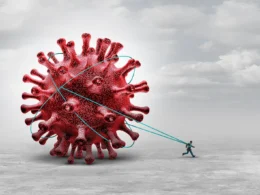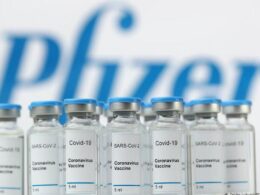A recent phase 3 clinical trial has revealed a promising method that may significantly enhance how doctors predict survival rates and tailor treatments for men with advanced prostate cancer.
By analyzing circulating tumor cells (CTCs) in the blood, researchers have discovered that the presence and quantity of these cells can forecast how long patients might survive and whether they will respond to standard treatments.
CTCs as Predictive Biomarkers
The study, published in JAMA Network Open, involved 503 men diagnosed with metastatic prostate cancer, a stage where the cancer has spread beyond the prostate and is no longer curable through surgery or radiation.
The key finding was that the number of CTCs in the bloodstream could predict patient outcomes. These rare cancer cells are shed from tumors into the blood, and researchers used the CellSearch test, already FDA-approved to quantify them.
Men with five or more CTCs had the poorest prognosis, with a median survival of 27.9 months. In contrast, patients with one to four CTCs survived for about 56.2 months, while those with no detectable CTCs lived for at least 78 months, with many still alive at the study’s conclusion.
The findings suggest that patients with higher CTC counts are more likely to experience rapid cancer progression and poorer responses to standard therapies.
Personalizing Cancer Treatment
This blood test is poised to change the way doctors approach prostate cancer therapy. It provides critical information early in the treatment process, helping physicians decide whether patients should stick to standard treatment plans or pursue more aggressive options, such as experimental drug trials.
“You couldn’t tell these men apart when they walked through the door,” explained Dr. Amir Goldkorn, the lead author of the study. Yet the test revealed stark differences in their survival prospects, which could guide better, more personalized treatment choices.
The ability to quickly identify high-risk patients who may benefit from new, more aggressive treatments despite potential side effects is invaluable. It allows for the early enrollment of these patients in clinical trials, which could ultimately improve survival rates for those with poorer prognoses.
Looking ahead, Dr. Goldkorn and his team are developing an even more advanced blood test that not only counts CTCs but also analyzes their molecular composition, along with circulating tumor DNA.
This could provide even more precise biomarkers to predict a patient’s prognosis and help identify those most likely to benefit from specific therapies. These efforts reflect a growing trend in cancer care, where precision medicine aims to match patients with treatments tailored to their unique genetic and molecular profiles.
This research is part of the broader SWOG Cancer Research Network initiative, which brings together over 1,300 institutions across the U.S. to collaborate on innovative cancer studies.
The study’s findings are expected to play a pivotal role in advancing how prostate cancer is treated, particularly in its most aggressive forms.
With prostate cancer being one of the most common cancers among men globally, this blood test could mark a turning point in improving survival rates for those diagnosed with metastatic disease.
As doctors continue to refine these tests and uncover new biomarkers, patients can look forward to more personalized, effective treatments that significantly extend life expectancy, even in advanced stages of cancer.
By adopting this innovative approach, the medical community is one step closer to ensuring that every man with advanced prostate cancer receives the most effective treatment possible, based on the unique characteristics of his disease.










Join our Channel...